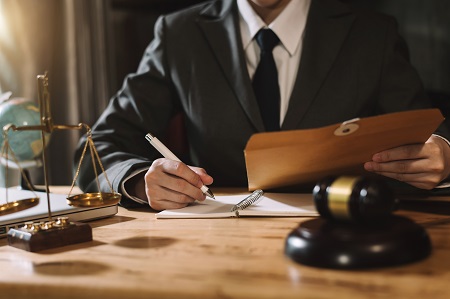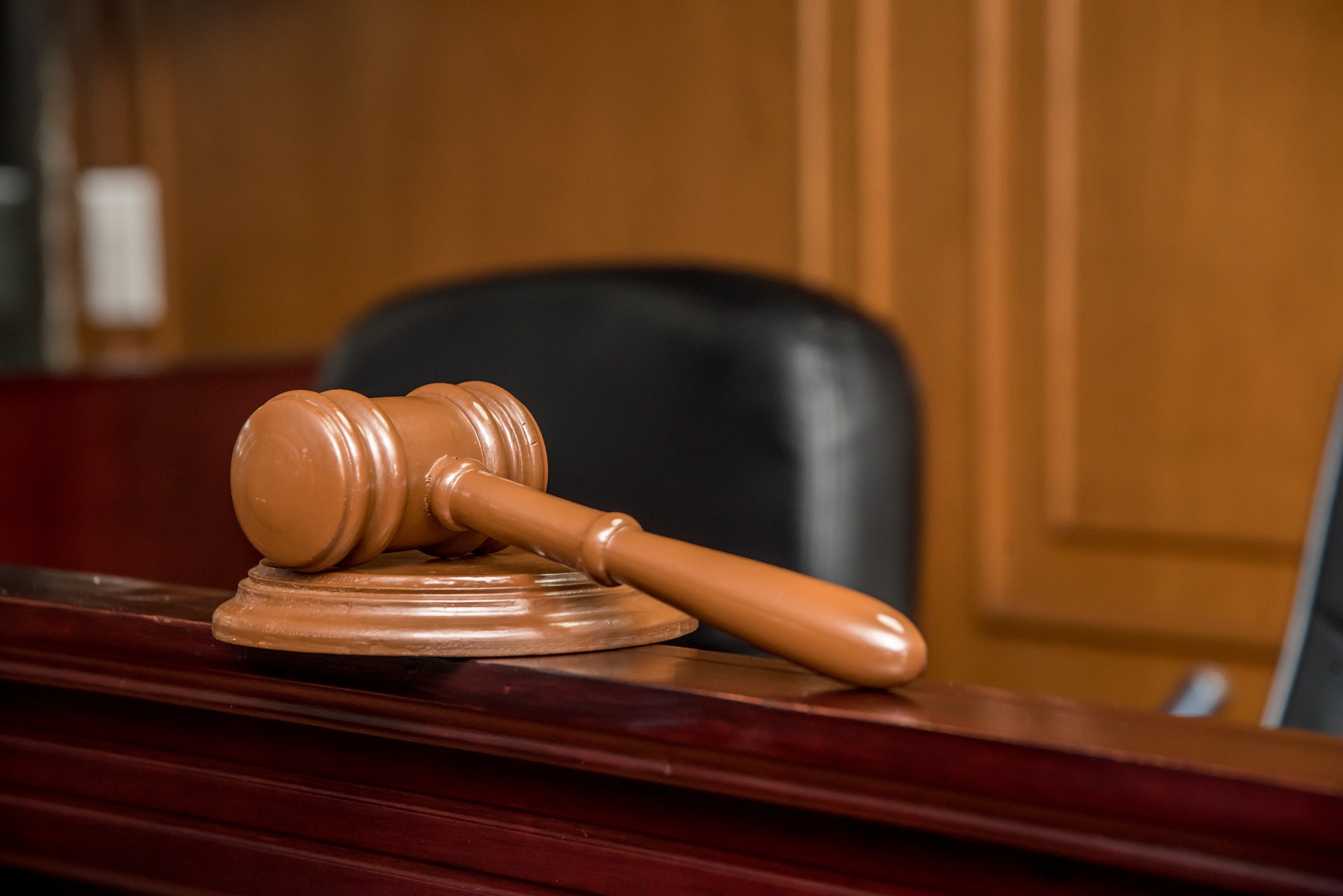Navigating the criminal defense process can feel overwhelming, especially if you are directly involved either as a defendant or a supporter of someone who is. Hiring a skilled felony attorney can provide crucial guidance and support. This guide, with insights from an experienced felony attorney, breaks down each step of the journey through the legal system, offering a clear path from the moment of arrest to arguing the case at trial. This guide is designed to help demystify what can often feel like an opaque and daunting process, ensuring you are well-prepared at every stage.
Understanding Your Rights: A Guide to the Criminal Defense Process

When you are thrust into the criminal justice system, knowing your rights from the start is your first line of defense. Here’s what to keep in mind:
- Immediate Rights: As soon as you are arrested, remember your right to remain silent and your right to an attorney. These rights are designed to protect you from inadvertently harming your defense.
- Seeking Representation: Hiring a defense lawyer early on can significantly influence the course and outcome of your case. Your attorney is your advocate and your guide in the legal maze, advocating for your rights and striving for the best possible outcome.
- Protect Your Own Interests: Utilize your Fifth Amendment right against self-incrimination. Stay silent until you can speak with your attorney, who will help navigate the conversation in a way that protects your interests.
Understanding these rights protects you and ensures you are treated fairly throughout the process.
What Happens After an Arrest? An Overview of the Initial Legal Steps
After a felony arrest, you can generally expect the following:
- Booking and Processing: Post-arrest, you will undergo a booking process. This is when your personal details are recorded, fingerprints taken, and your presence in the system is officially logged.
- Jail: Depending on the timing of your arrest process, you might be held in jail until your first court appearance, particularly if you’re arrested during non-business hours like nights, weekends, or holidays.
The period immediately following an arrest is critical and can feel unsettling, but knowing what happens next can provide some reassurance.
Navigating the First Appearance: What to Expect and How to Prepare
The “first appearance” is just that – it is your first formal court appearance. Here’s what this entails:
- Facing the Charges: This is when you will hear the charges laid against you. Listening to and understanding these charges is crucial as they form the foundation of what you will be defending against.
- Bail Discussions: The judge decides whether to release you or require you to post bail. This decision is based on factors like your ties to the community, criminal history, and the nature of the charges. Your attorney will know how to appropriately argue for you.
At your second felony court date, the arraignment, I generally advise my clients to plead “not guilty.” The arraignment sets the tone for your case, making it a pivotal moment in the criminal defense process. Entering a “not guilty” plea preserves all of your rights, defenses, and options available to you..
The Role of Bail in the Criminal Justice System and How It Works
Bail can play a critical role in your ability to prepare for trial. Here’s how it fits into the larger legal landscape:
- Purpose of Bail: The main purpose of bail is to ensure that you return for your court dates and to ensure community safety. It’s not meant to punish but to guarantee compliance with the legal process.
- Factors Influencing Bail: When setting bail, the court considers several factors, including the severity of the alleged crime, your prior criminal record, and how rooted you are in the community.
Understanding how bail works and what factors influence it can help demystify one of the more technical aspects of the criminal process.
Discovery Phase in Criminal Cases: What It Entails and Why It Matters
The discovery phase is where the groundwork for much of the case is laid. Here’s what happens:
- Exchange of Evidence: Both sides share all pertinent information related to the case, including evidence, witness lists, and police reports. This is crucial for building a defense.
- Strategy Development: With full knowledge of what the prosecution will present, your defense team can develop a strategy that addresses each point, capitalizing on weaknesses in the prosecution’s case.
This phase is less about the dramatics seen in courtroom dramas and more about meticulous preparation and strategic planning.
Key Pre-Trial Motions That Can Shape Your Criminal Case
In preparing your defense, several motions can set the stage for what will and won’t be included should the matter proceed to trial. Here’s a look at some key pre-trial motions:
- Motion to Suppress: If evidence was illegally obtained, your lawyer can file a motion to suppress it, meaning it can’t be used against you in trial.
- Motion to Dismiss: Lack of sufficient evidence or significant procedural errors could lead your lawyer to request that charges be dismissed outright.
These motions can significantly influence the case’s landscape, offering strategic advantages before presenting the case to a jury should the matter proceed to trial.
Inside the Criminal Trial: A Step-by-Step Walkthrough
The trial is the climax of the criminal defense process. Here’s a detailed look at what happens:
- Jury selection: Both sides question a pool of potential jurors and then select an unbiased jury.
- Opening Statements: Each side presents its overarching narrative and key arguments to the jury.
- Presentation of Evidence: Both the prosecution and defense will present their evidence, call and cross-examine witnesses, and attempt to build their case in the eyes of the jury.
- Closing Arguments: The trial concludes with each side summarizing their points, striving to cement their arguments and sway the jury to their side.
The trial is a dynamic and fluid part of the process, where the preparation from earlier stages comes to fruition.
Hire a Felony Attorney with Carley Legal Services
As we conclude our exploration of the criminal charges process, it’s clear that facing felony charges is a significant and stressful ordeal that can have profound implications on your life. If you find yourself navigating such a situation, hiring an experienced felony attorney is crucial. At Carley Legal Services, you will find a team that not only understands the gravity of your circumstances but also possesses the detailed knowledge and commitment required to offer a zealous defense in cases involving domestic violence charges, DUIs, drug charges, burglary, robbery, and more.
At Carley Legal Services, our professional legal team digs deep into the particulars of each case, challenging assumptions and exploring every facet of the evidence presented. Our goal is to ensure you are fully informed throughout the process, providing you with a tailored strategy that aims for the best possible outcome. Whether negotiating a plea or taking your case to trial, our team is dedicated to protecting your rights and fighting for you. Choosing a dedicated attorney can make all the difference in the world, and Carley Legal Services is here to stand by your side with experience, empathy, and relentless advocacy.
Contact us today for an experienced attorney.
Criminal defense services we provide:
- Domestic Violence Assault Lawyer
- DUI Lawyer / DWI Defense
- Robbery and Burglary
- Firearm Rights
- And More
Visit our Testimonials page to see what our clients have to say about our law firm.


